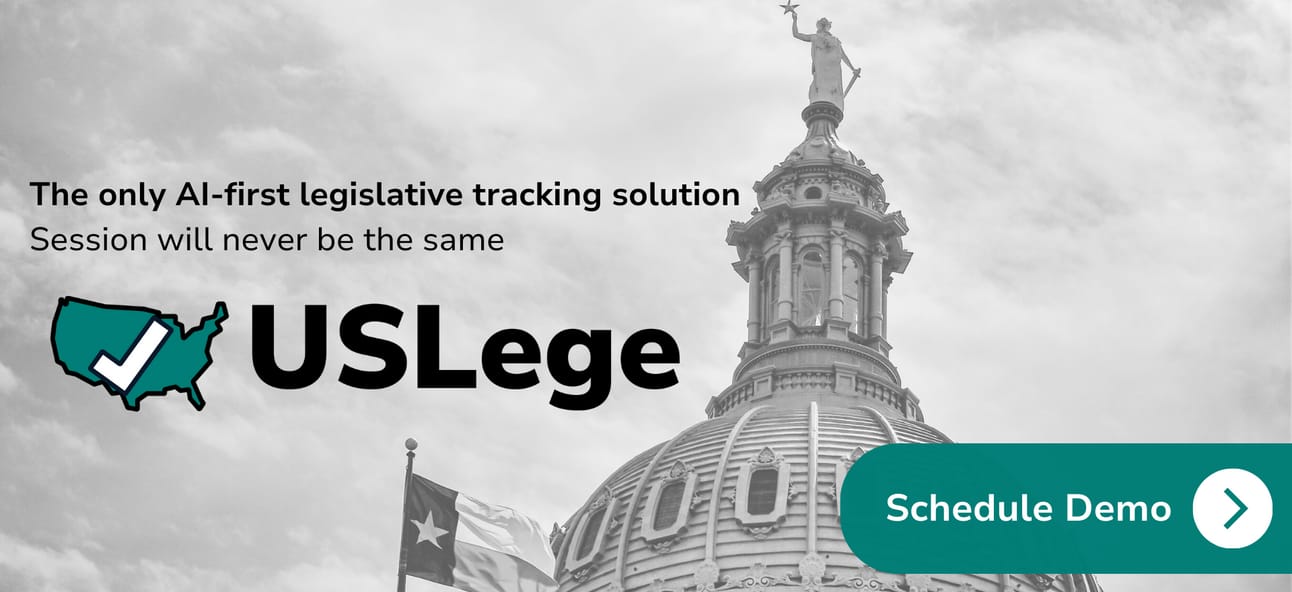
Welcome back, friends
Texas is pushing forward with a new cybersecurity initiative through HB 150, which would create the Texas Cyber Command to protect state agencies and critical infrastructure from cyber threats. Meanwhile, SB 241 seeks to hold cities accountable for enforcing the state’s public camping ban, with strict penalties for non-compliant local governments.
Today’s Insights:
HB 150 Proposes Creation of Texas Cyber Command
SB 241 Seeks to Hold Cities Accountable on Homeless Camping
HB 150 Proposes Creation of Texas Cyber Command
HB 150, authored by Representative Capriglione, proposes the creation of the Texas Cyber Command as part of The University of Texas System, with administrative attachment to The University of Texas at San Antonio. The bill seeks to transfer certain responsibilities from the Department of Information Resources to the new command, which will be led by a chief appointed by the governor. The Texas Cyber Command would be responsible for preventing and responding to cybersecurity incidents impacting state agencies, local governments, and critical infrastructure. Its duties would include developing cybersecurity tools, providing training, establishing statewide standards, and forming partnerships to enhance cybersecurity preparedness. Additionally, the bill outlines the establishment of a cybersecurity threat intelligence center, a cybersecurity incident response unit, and a digital forensics laboratory.
Governor Abbott announced that the state will partner with the University of Texas at San Antonio to utilize its resources and expertise in launching the Texas Cyber Command. San Antonio is home to one of the largest concentrations of cybersecurity experts, and the University of Texas at San Antonio was selected to join the U.S. Cyber Command Academic Engagement Network in 2022, collaborating with the Department of Defense on cybersecurity initiatives. Abbott emphasized the importance of protecting against foreign threats and stated that the new command will provide state and local agencies with cybersecurity resources, post-attack investigations, and incident response planning. The proposed command also aims to bolster statewide cybersecurity efforts in the wake of recent attacks, such as the January 27 cyberattack on Matagorda County, which prompted a disaster declaration.
“As cybersecurity threats continue to increase in significance and sophistication, Texas must lead the nation in safeguarding critical infrastructure from hackers and hostile foreign actors. China, Iran, Russia, and other foreign enemies could cripple our power, water, and transportation systems with online attack”
SB 241 Seeks to Hold Cities Accountable on Homeless Camping
SB 241, authored Senator Pete Flores, aims to reinforce of the state's public camping ban by limiting local governments’ ability to restrict or discourage enforcement efforts. The bill mandates that cities and counties establish a formal process for residents to file complaints about violations of the camping ban and requires them to address these complaints within 90 days. If local governments fail to act within that timeframe, the Texas Attorney General may label them as a “violating local entity,” allowing the Department of Public Safety to intervene and enforce the ban. Additionally, cities and counties cannot establish designated camping areas for homeless individuals without approval from the Texas Department of Housing and Community Affairs.
This bill also includes provisions to recoup state enforcement costs from non-compliant local governments. If the state takes enforcement actions within a jurisdiction labeled as a “violating local entity,” it can withhold sales tax revenue to cover related expenses. Changes to existing laws are also proposed to clarify how personal property is handled during enforcement; while camping tents are protected, permanent or semi-permanent structures are not. The bill is scheduled to take effect on September 1, 2025, and would apply to enforcement actions and revenue distribution policies beginning in the 2026 fiscal year. SB 241 was heard in the Senate Committee on Local government on March 10th and was left pending
» To watch the full hearing, click here.
We hope you enjoyed today’s read!
🎙️Check Out Our Podcast! 🎙️

Bills and Business is your go-to podcast for conversations related to Texas legislation and business. Hosted by Laura Carr, Co-Founder of USLege—an AI-driven legislative tracking software—we bring you in-depth analysis on economic trends, impactful legislation, and key developments shaping Texas business.
Subscribe on Youtube, Apple Podcasts, and Spotify for weekly episodes!
🔍 USLege - The Only AI-First Political Tracking Solution ✨
USLege helps you track legislation and find what you need faster from bills, committee hearings, floor debates, and state agency meetings faster.
Say goodbye to tedious tasks!
🤝 Texas Association of Business 📈

Texas Association of Business (TAB) is the Texas State Chamber, representing companies of every size and industry. TAB’s purpose is to champion the best business climate in the world, unleashing the power of free enterprise to enhance lives for generations.
All Texas News, Quick 5-Minute Reads, Always Free!
Join over 200,000 Texans who start their day with The Texas Flyover. A quick 5-minute read. Crafted by Texans, for Texans, we capture the unique spirit of the Lone Star State. Always free! Don't miss the fastest-growing daily newsletter in Texas.
